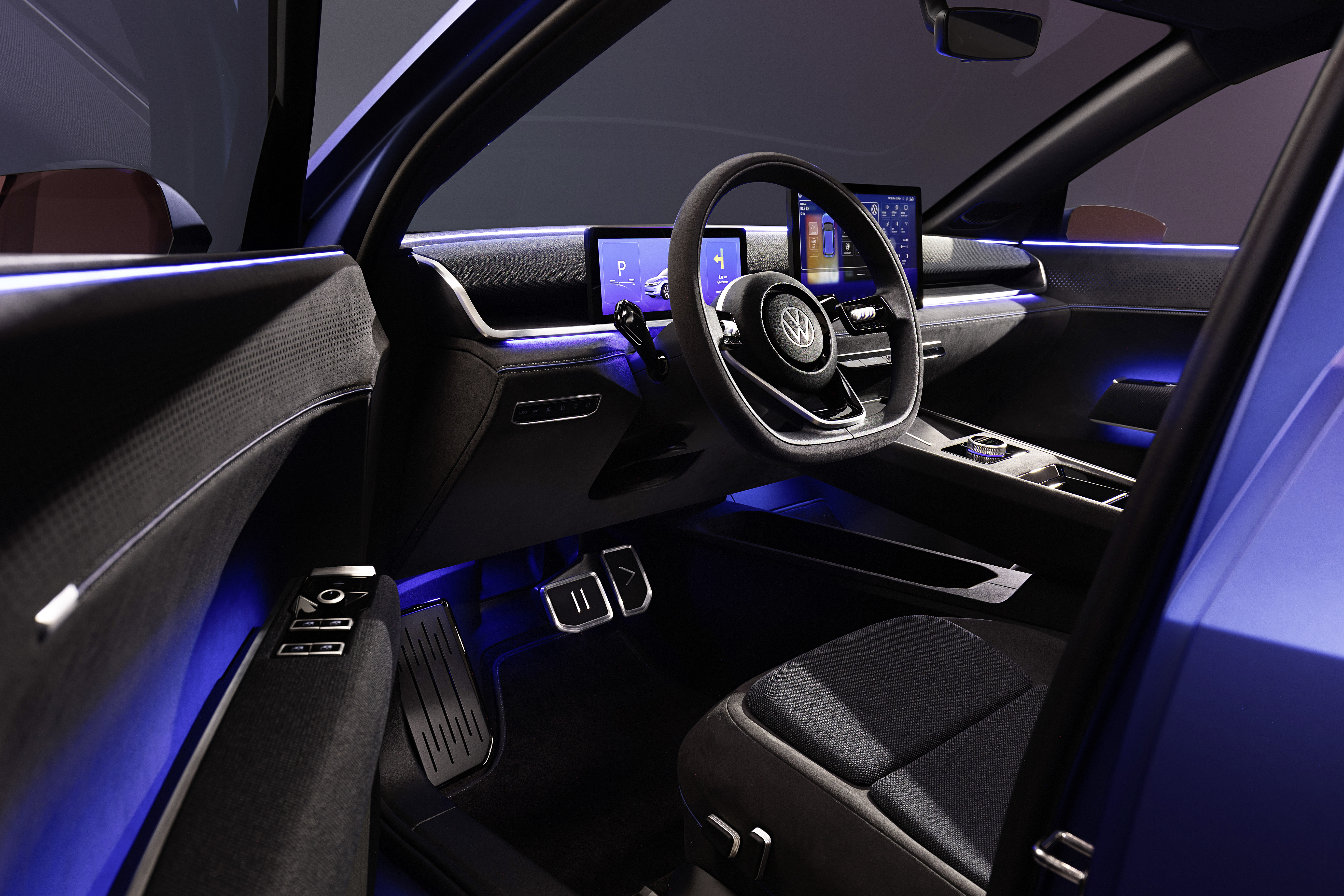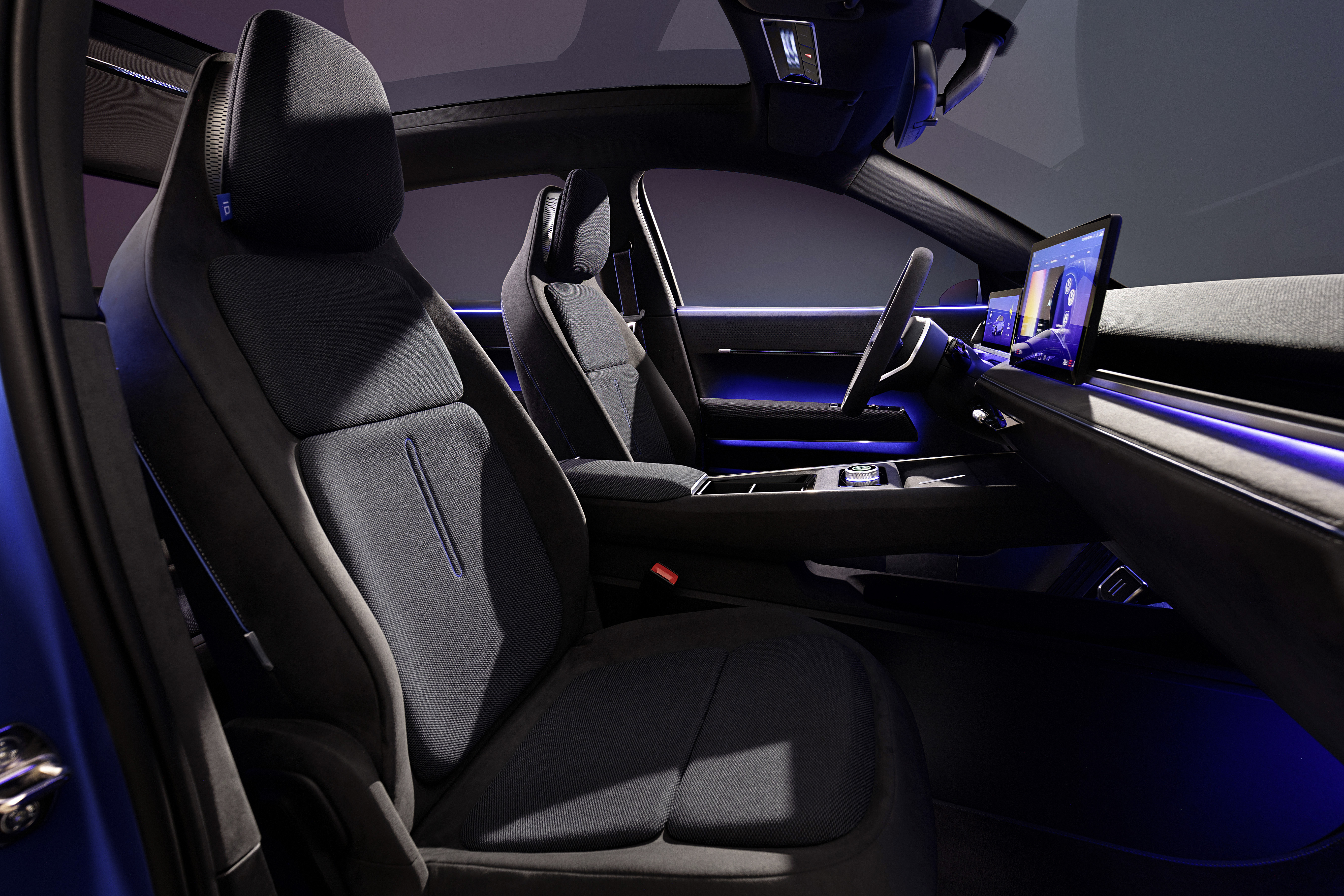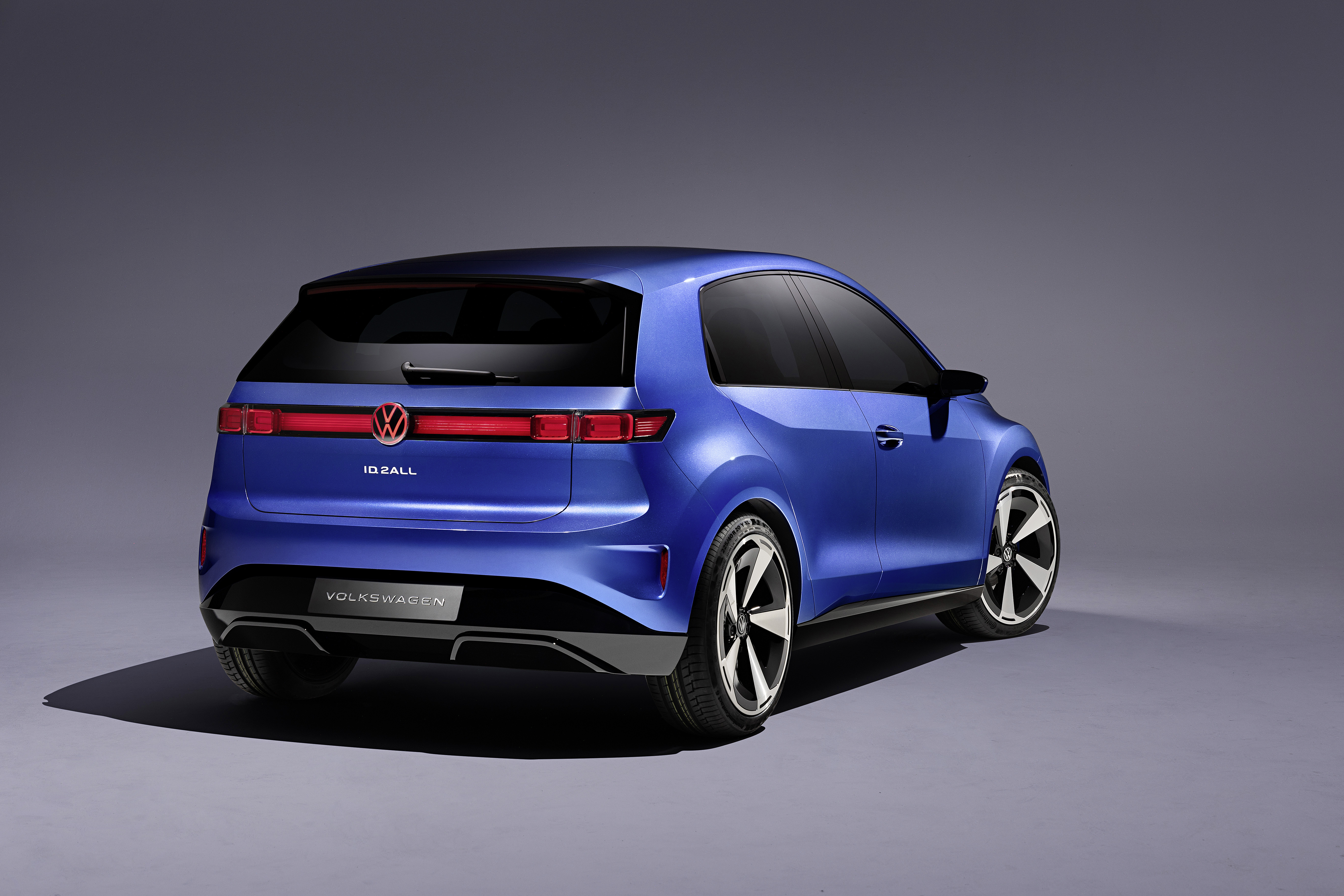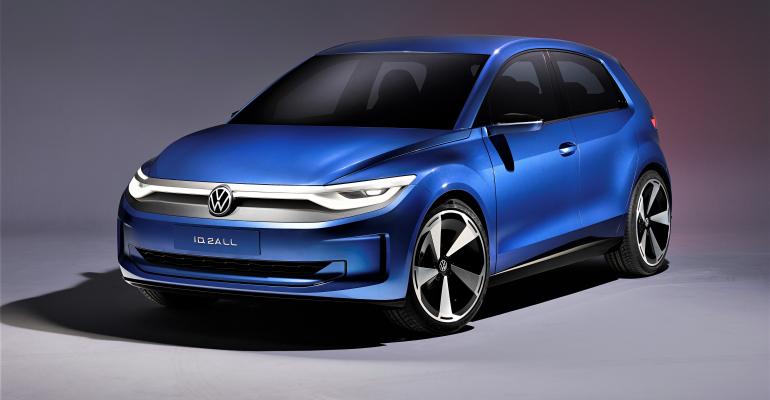Volkswagen reveals the ID. 2all, a concept car presaging an entry-level electric hatchback that is planned to go into production in 2025 at a targeted starting price less than €25,000 ($26,500) in today’s money, according to the German automaker’s CEO, Thomas Schaefer.
Conceived following internal criticism of the earlier ID. Life concept unveiled by VW at the 2020 Munich auto show, the ID. 2all is slated to include a 222-hp, range-topping GTi performance model. It’s being developed in a three-way engineering program that also includes a production version of the Cupra Urban Rebel concept and a yet-to-be-revealed entry-level electric Škoda.
All three compact BEVs will be produced at VW affiliate SEAT’s factory in Martorell, Spain, with production at one of VW’s joint-venture operations in China possibly added later.
North American sales of the electric hatchback are yet to be confirmed more than two years out from its planned launch, although VW says the ID. 2all concept points to a global model being considered for all existing markets.
Positioned below the ID.3 BEV, the production version of the ID. 2all will be the first VW based on the company’s MEB-Entry platform – a skateboard-style structure (pictured, below) that will be essential in ensuring the BEV is delivered at the targeted price, Schaefer announces at its unveiling in Hamburg, Germany.

Developed by VW design boss Andreas Mindt, the ID .2all’s exterior departs radically from the earlier ID. Life concept, with a more conventional hatchback shape and a 5-door layout aimed at providing maximum versatility and practicality within compact dimensions, with wheels up to 20 ins.
Mindt, the former head of exterior design and Audi and head of design at Bentley, explains the new-look design draws upon the three traditional VW brand values: “stability,” “likability” and “excitement” – all of which, he says, draws from iconic models such as the Beetle, Microbus and Golf and will be featured on the production version of the ID. 2all with little change.
The basis for VW’s smallest electric model yet is a further-developed version of its existing Modular Electric Toolkit platform. The new structure has been engineered specifically for front-wheel-drive models and is expected to support a 400V electric architecture.
Power for the ID. 2all comes from a front-mounted electric motor delivering a claimed 222 hp. VW says this provides it with a Golf GTi-challenging 0-60 mph (97 km/h) time of “less than 7.0 seconds” and “limited 100 mph (161 km/h) top speed.” Other, less-powerful electric motors will also be offered in the production version.
No information is revealed on battery plans, but in a strategy similar to its existing electric-powered ID.-branded models, VW reveals it is studying batteries with differing capacities and chemical processes, including a lithium-iron phosphate battery under development at its Braunschweig R&D headquarters in Germany.
While VW admits its range estimation is not final, it does say the ID. 2all will be capable of traveling up to 280 miles (450 km) between charges on the WLTP test cycle. By comparison, the ID.3 boasts a maximum WLTP range of 341 miles (549 km) in combination with its largest battery, a 77-kWh lithium-ion unit.
Similarly, VW is mum about the BEV’s DC charging capacity. However, VW does suggest the battery will be able to be charged in less than 20 minutes on a high-powered charger.
As with its exterior, the interior of the ID. 2all (pictured, below) is claimed to provide a clear preview of the entry-level BEV.

Overall, there is seating for up to five. Despite the relatively compact external dimensions, accommodation both front and rear is claimed to be at a level similar to that of today’s eighth-generation Golf owing to packaging advantages offered by the MEB Entry EV platform, which boasts a completely flat floor.
A new-look dashboard includes 10.9-in. (28-cm) instrument and 12.9-in. (33-cm) infotainment displays, plus a multi-function steering wheel with rotary controllers and a head-up display.
Among the key elements is an air-conditioning panel with illuminated buttons as well as a rotary controller for the sound system volume – both hinting at plans by VW to replace the existing slider and touch controls of the ID.3, ID.4, ID.5 and Chinese-market ID.6 with more traditional analog controls.
At the base of the dashboard is a central stowage space housing two charging pads for smartphones. Two more inductive and magnetic charging interfaces are integrated into the back of the front seat headrests. There also are USB-C sockets and a 230V socket to enable the charging of laptops and other devices.

Added practicality is provided by a front passenger seat backrest (pictured, above) that can be folded forward. In combination with the 60:40 folding mechanism of the rear bench seat and stowage area of the trunk, this gives the hatchback a load length of up to 7.2 ft. (220 cm).
Hinting at the sort of optional equipment and driver-assistance systems to be included on the production version of the ID. 2all, VW says it will be available with a panoramic glass roof, electric front seats with a massage function, LED matrix headlamps and the latest versions of the automaker’s Park Assist Plus and Travel Assist systems – the latter offering limited hands-off driving capability in traffic jams.
The upcoming production version of the ID. 2all is among 10 electric models VW plans to launch by 2026. Included is the recently unveiled facelifted ID.3, a long-wheelbase version of the ID. Buzz commercial vehicle and a production version of the ID.7 sedan. All are to be unveiled by the end of 2023.
During the unveiling of the concept, Schaefer reveals VW is developing an even smaller and more affordable electric model with a targeted price of less than €20,000, or $21,200 on today’s euro-to-dollar exchange rate.






